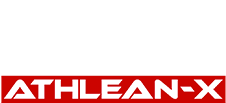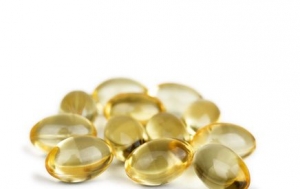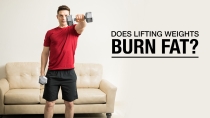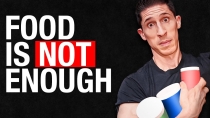
However, new research is showing that a multivitamin may not be necessary for adults. A recent study by the CDC showed that Americans aren’t deficient in most vitamins and minerals. Most of us should be getting adequate nutrition from our food if we’re eating whole foods, and many of our packaged foods are fortified with vitamins and minerals. Breakfast cereals, milk, nutrition bars and grains are all fortified, giving us more vitamin intake than we realize and perhaps even more than we need. With a few exceptions, in most cases taking a multivitamin will not hurt you…but why fix what’s not broken?
There are certain considerations for women. For example, women of child-bearing age should ensure that they are getting enough folate to prevent birth defects. Often women are also iron-deficient which can put us at risk for anemia. Also, post-menopausal women or those women on specialized diets may need a boost in certain nutrients. Discuss your nutritional needs with a doctor and get his or her recommendation on which specific vitamins you may need to supplement.
Are there specific vitamins that are worth taking if we are looking to aid weight loss and muscle recovery? While it’s best to try and get your vitamins from food sources whenever possible, sometimes a supplement can make up for what your diet may not cover. Here are 4 supplements to discuss with your doctor, depending on your specific diet, weight loss and strength building goals.
Vitamin B
B vitamins are known as for being catalysts for energy metabolism in your body and are involved in the breakdown of carbohydrates, fat and protein for energy. They help to unlock energy stored in these nutrients to help maintain or increase energy levels during exercise. In a study conducted by the University of Oregon, athletes who were deficient in the B vitamins experienced difficulty building muscle and healing from muscle injuries. People with vitamin B deficiency also may experience dizziness, fatigue and shortness of breath. Some people take B-12 injections as a way to boost metabolism and energy, but these are unlikely to help unless you have a deficiency. Ask your doctor to conduct a lab test if you suspect you’re deficient.
Food sources of vitamin B12 include animal foods such as fish, shellfish, dairy products, eggs, beef and pork. Plant foods like dark leafy greens and whole grain bread or brown rice also are good sources of a range of B vitamins.
Vitamin D
Vitamin D helps to regulate calcium and phosphorus absorption levels in your blood and bones and is a significant contributor to bone strength. This is important for those of us who are athletes or who work out regularly, as well as for those of us over 30 wishing to avoid bone loss and eventually osteoporosis.
Natural sources of vitamin D include dairy products like milk and yogurt…and short bits of time in the sun! The time you spend outside during summer is probably enough to meet your vitamin D needs, but have your doctor check your levels during winter or if you live in a less sunny part of the country (such as the Pacific Northwest).
Vitamin C acts as an antioxidant, boosts your immune system and helps your body better absorb iron, which in turn helps your body to replenish nutrients and repair tissue damage. Strength training causes micro-tears in your muscles, which lead to the inflammation and soreness you feel post-workout, but also lead to the growth of your muscles over time (that tone you’re going for!) The antioxidants in vitamin C are an important piece of the proper nutrition you need for these tears to repair themselves quickly.
Vitamin C is easy to get in the diet by eating citrus fruits and green leafy vegetables. If you choose vegetable sources for your vitamin C, eat them raw as cooking tends to destroy some of their vitamin C.
Calcium
Calcium is one of the most important nutrients for bone growth and regulating how our muscles contract. Vitamin D and calcium work together to both maintain healthy bones and muscle function. Calcium is also an integral part of the contraction and relaxation of your muscle fibers.
It’s important to get enough calcium in your diet, but be careful not to overdo it on calcium. Doing so could cause kidney stones, inhibit the absorption of other important vitamins and perhaps even weaken your bones. The recommended daily allowance is 1000 mg with the top limit being 2500 mg. Ask your doctor to check your calcium levels and decide together whether taking a supplement is necessary.
Natural sources of calcium in your diet are dairy foods as well as spinach and other dark leafy greens, eggs, almonds, dried beans, broccoli, figs, raisins and carrots.
It’s important that you discuss your nutritional needs with your doctor prior to beginning any supplements, as there are some individual vitamins that can be harmful if taken in excess. If you’re looking for a protein and supplement powder shake to help boost your workout performance and weight loss, consider our Athlean-RX4 Women Protein Supplement, with a whopping 26g of protein per serving and only 2g of carbs. It contains calcium and vitamin D, which as I’ve mentioned, are important for bone and muscle growth. It also contains iron to help women build strong immune systems and avoid anemia, as well as three anti-aging antioxidants: Royal Jelly, Resveratrol (red wine extract) and Co-Q-10. Papaya enzyme also helps digestion and relieves inflammation caused by sports injuries. Our ladies on Team Athlean love RX4 Women because it’s a tasty protein shake they can grab for snacks or post-workout!





